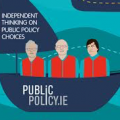The Case For Water Metering
12 Nov 2014Some have questioned the expenditure on installing water meters and argued that better use of the money would be to fix leaky pipes.
What is the case for water metering ?
With Metering
1. Those who use most pay most.
Fairness goes out the window if there are no meters. Without meters, we can’t charge based on how much we use. And this means that those who use most (often the richest of us) can be subsidised by those who use the least (often the poorest of us). And those hundreds of thousands who have funded the capital and operating costs of their own water supplies with wells and their waste disposal with septic tanks, and those in group water schemes, are subsidising the rest of us.
No Meters – those who waste water are rewarded
Yes Meters – it’s fairer – we pay in proportion to our use
2. Helps find the leaks.
In the case of group water schemes, where leaks occur on the user’s property, they tend to get fixed right away – to do otherwise costs money. Metering helps find out exactly where the leaks are, so they can be fixed.
No Meters – finding leaks is difficult, inaccurate and slow
Yes Meters – finding leaks is easier, quicker and cheaper, and it provides an evidence base for setting priorities
3. Save on capital investment.
Without the ability to manage demand using prices, we will need to invest in new supplies sooner than is necessary, and this costs. If we can postpone this investment, we save money.
Dublin is a case in point. At current rates of consumption, we will soon need to add to supplies, with the favoured option being to pipe and pump water from the Shannon to Dublin. But we have made minimal efforts to manage the demand for water in Dublin. The most effective conservation measures are a combination of carrot and stick; an increasing block pricing scheme, where the price of water per litre increases in steps as consumption per unit time rises, combined with a subsidy scheme that supports owners to invest in water conservation systems.
In Dublin, the worst case scenario would be where we have no pricing and therefore can’t effectively conserve, and at the same time the opposition in the Shannon region proves so intense that extra supply from there is not delivered, or it proves to be hugely expensive to do so and is delayed. In this situation, we would end up with water supply interruptions, rationing, and all the reputational damage, costs to households and business, and inconvenience that can arise.
No Meters – waste scarce capital create environmental and political issues that are involved in increasing supply
Yes meters – conservation is rewarded, and the necessity to add to supplies is deferred or eliminated
4. Penalizes the behaviour of those people who run their water 24 hours a day to prevent their pipes from freezing.
No Meters – they waste your water and your money
Yes Meters – the 24 hour a day water users may do it once, but they are not likely to do it twice
5. Helps us to manage droughts and water shortages
Climate change makes it more likely that we will experience more extreme weather events – more flooding and more droughts. Pricing helps us to manage droughts so that the reservoirs do not run dry, and so that, even in adversity, we can continue to meet the essential needs of households and businesses.
No meters – supply interruption , rationing, disruption to health, households and business
Yes meters – crises will be avoided, and those who are very efficient in their use of water can be rewarded.



